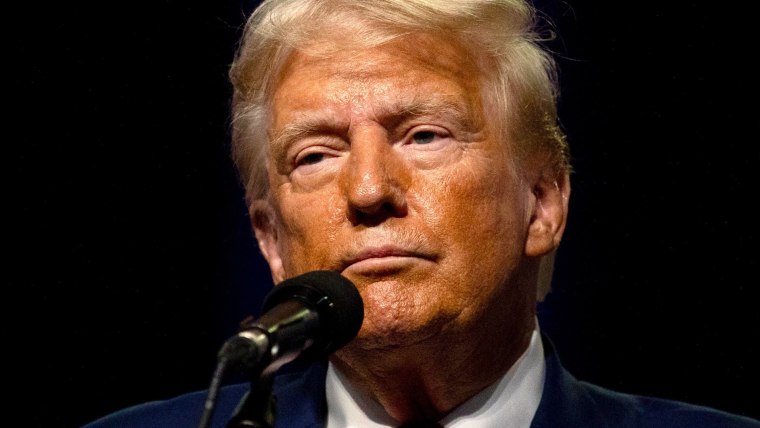It was about a year ago when Donald Trump was initially indicted over his efforts to overturn his 2020 presidential election defeat. It’s a case that was delayed by a series of procedural appeals, culminating in a scandalous U.S. Supreme Court ruling that, to a radical degree, elevates the American presidency above the law.
That ruling, of course, was issued by Republican-appointed justices last month. This month, as my MSNBC colleague Jordan Rubin explained, special counsel Jack Smith and his team decided it was time for a new indictment related to the same underlying crimes.
Special counsel Jack Smith filed a new indictment against Donald Trump in the federal Jan. 6-related prosecution on Tuesday. The superseding indictment presents the same four charges, albeit in a shorter indictment, against the former president.
In other words, the GOP nominee is still being charged with conspiracy to defraud the United States, conspiracy to obstruct an official proceeding, obstruction of and attempt to obstruct an official proceeding, and conspiracy against rights, but the charges are now being presented in such a way as to accommodate the Republican-appointed justices’ opinion.
“The superseding indictment, which was presented to a new grand jury that had not previously heard evidence in this case, reflects the Government’s efforts to respect and implement the Supreme Court’s holdings and remand instructions,” the special counsel’s office said in the filing.
For the most part, the criminal defendant responded as expected. Trump began, for example, by turning to his donors, seeking a reward for the grand jury’s findings. (The subject line in the appeal: “I was just indicted again!”) The Republican has long tested the “crime doesn’t pay” adage, and it was hardly surprising to see him do so again.
Around the same time, the former president turned to his social media platform to issue a furious tirade about the charges, Smith, and the efforts to hold him accountable. Trump then issued another such statement. Then another. And then another.
About an hour later, however, Trump rolled out a different kind of complaint. “It is DOJ policy that the Department of Justice should not take any action that will influence an election within 60 days of that election — but they just have taken such action,” Trump wrote. “Voting starts on September 6th, therefore the DOJ has violated its own policy — Election Interference.”
So, a couple of things.
First, Election Day 2024 is 69 days away. Yes, some states allow early voting that will begin much sooner, but Trump’s attempted “gotcha” probably won’t amount to much. Indeed, as Lawfare's Anna Bower explained, prosecutors explained in a March court hearing that the judge that the “60-day rule” does not apply to cases like Trump’s "that have already been charged and are now in the hands of the judicial system."
Second, it’s kind of hilarious to see the Republican take a sudden interest in a DOJ rule he was eager to ignore four years ago.
In October 2020 — 30 days before Election Day, with early voting already underway across much of the country — Trump publicly called on federal prosecutors to charge Joe Biden, accusing him of undefined crimes.
In fact, on Oct. 7, 2020 — 31 days before Election Day — Politico published an especially memorable headline: “‘Where are all of the arrests?’: Trump demands Barr lock up his foes.” The next day, the then-Republican incumbent spoke with Fox Business and called on the Justice Department to “indict” his perceived Democratic foes — including Biden.
In other words, when Smith’s office issues a superseding indictment 70 days before Election Day 2024, before early voting begins in any state, Trump sees it as proof of “election interference” and a violation of Justice Department policy. But when Trump was in office, he nevertheless expected the DOJ to charge his Democratic opponent with made-up crimes much closer to Election Day 2020.
How does the former president explain the contradiction? So far, by ignoring it.

